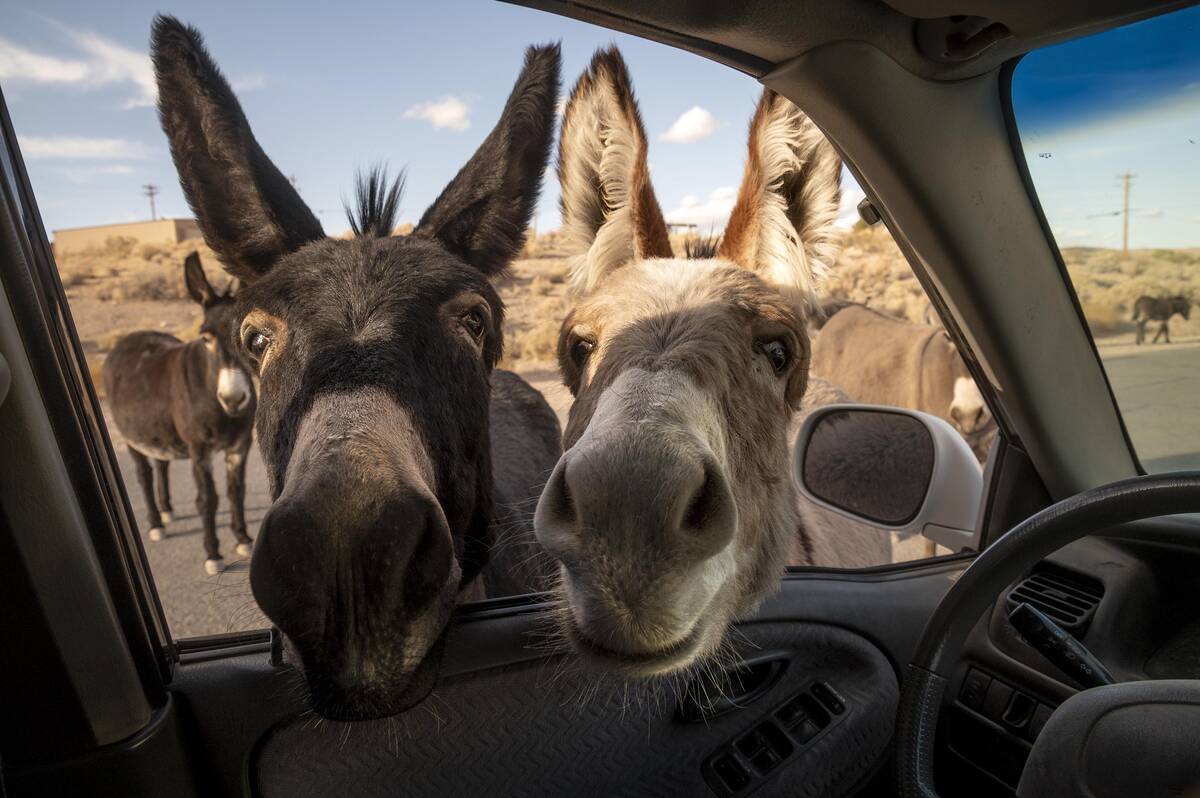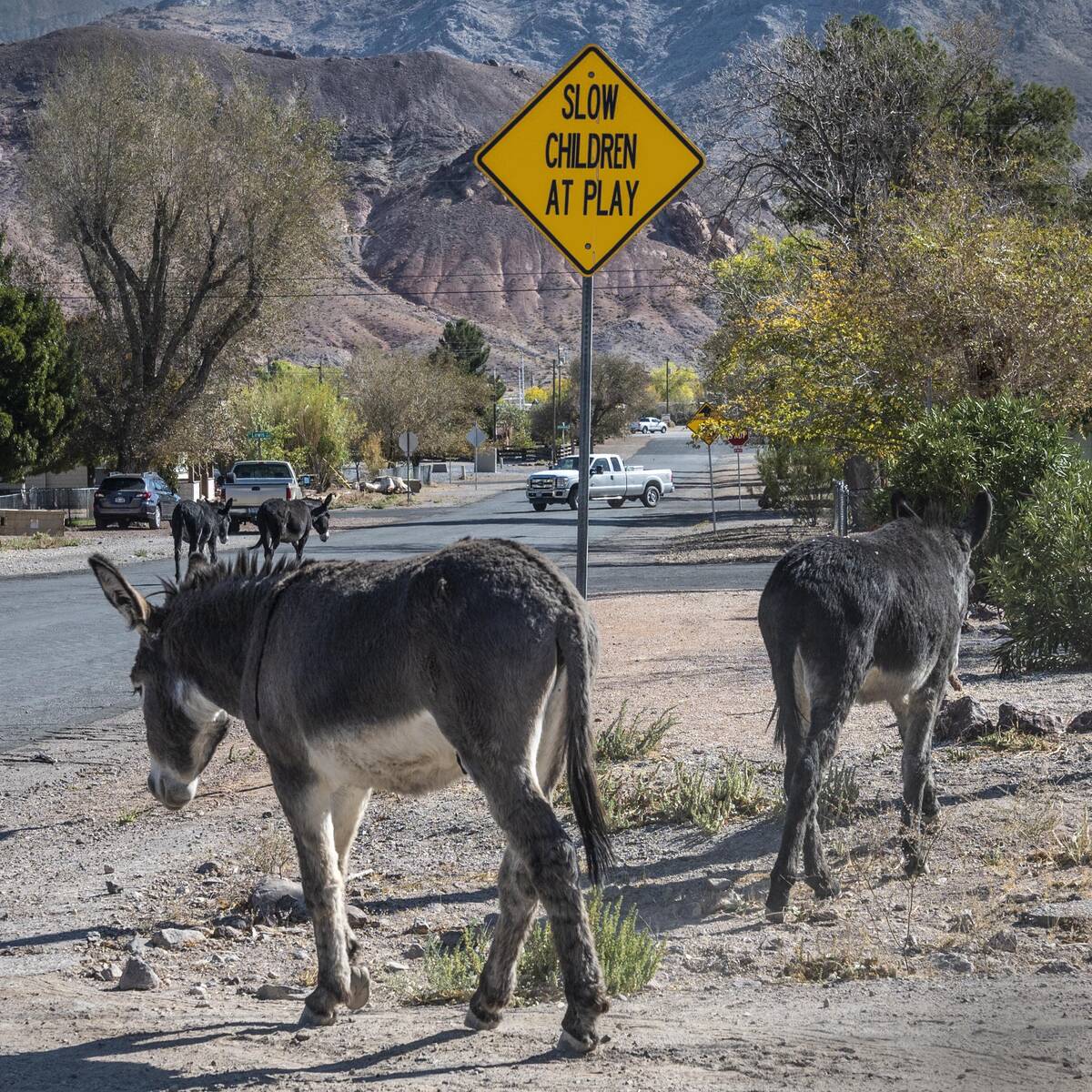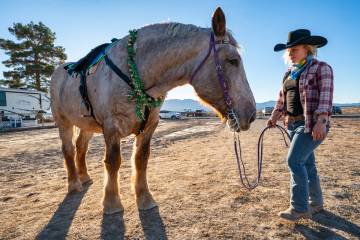Bye-bye burros: Beatty looks to thin herd
BEATTY —Some people love them, some people hate them, and most seem to do a bit of both. But what should be done about them?
Free-roaming wild burros have become part of the image of Beatty for locals and tourists.
Many find them charming and entertaining, but they also can be a nuisance and a safety hazard.
When you live with wild burros, you need to fence your property if you don’t want your landscaping eaten.
If you place an edible plant too near the fence, anything the burros can reach from outside is fair game for their appetites, and they may just bend or break the fence going after more.
Beatty has a major highway running through town, and burros wandering onto U.S. 95 are all too frequently struck and injured or killed. This also creates a danger for motorists. Vehicles, and sometimes their drivers, tend not to fare well in collisions with large animals.
With safety in mind, the Beatty Town Advisory Board has composed a letter to the Bureau of Land Management requesting a gathering to remove some of the burros from the town and surrounding area.
The letter points out that the last gathering, conducted in 2018, removed 404 burros. As of that gather, the letter states, “the estimated population was 811% of the high Appropriate Management Level of 91 burros” in the Bullfrog Herd Management Area. Since then the burro population has continued to increase.
As the board discussed sending the letter, one resident, Fred Summers, proprietor of the Happy Burro in Beatty, spoke in favor of the burros.
Summers prepared a tongue-in-cheek flier which listed “five reasons not to get rid of the burros.” The flier said that burros attract tourists, they are traffic control, they keep coyotes out of town, they control rattlesnakes, and, “Of all the Asses in town, the ones with long ears are the smart ones!”
“I’m for the burros. You’ve got my vote!” said Summers.
In speaking in support of the gather, resident Debbie Baker told of a recent incident in which a senior citizen’s vehicle was severely damaged by burros. She said that, as one jack was chasing the other, the first scrambled on top of the vehicle, “putting its rear through the windshield,” and doing more damage as it continued on, and the pursuer caused additional damage.
Karl Olson said the biggest problem is with people feeding the burros, something the BLM has warned against. Because they are used to being fed by tourists, for instance, they hang around by the highway and approach stopped vehicles.
Some time back, a station wagon had its side windows shattered and some body damage as it slowed down to turn into a motel parking lot, when two burros raced toward it and collided with it.
There has been some discussion of the BLM instituting fertility control measures to keep the burro population under control, but nothing has been done along that line yet. The agency relies on holding facilities and adoption programs to handle the animals it gathers.
Richard Stephens is a freelance reporter living in Beatty.


















